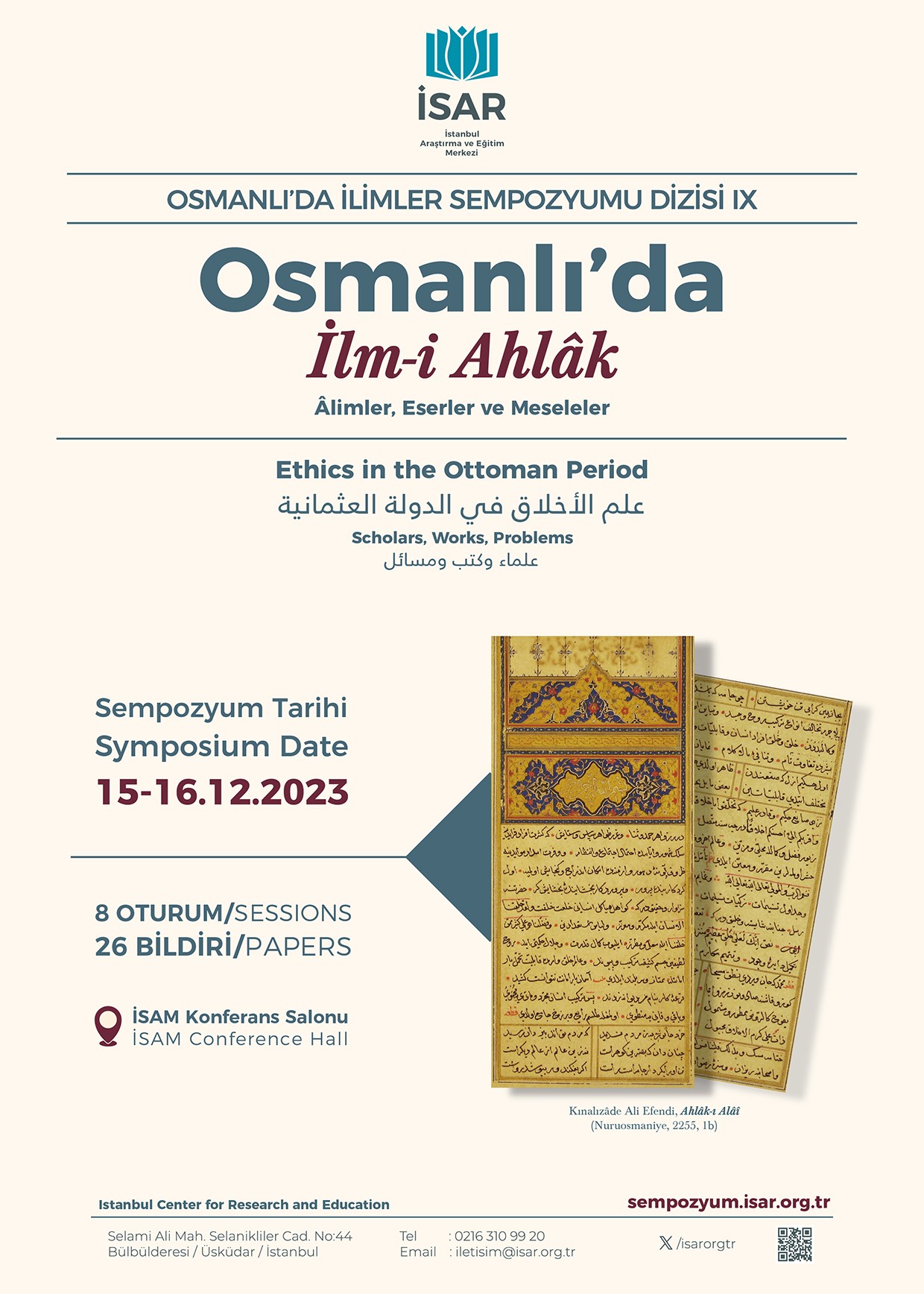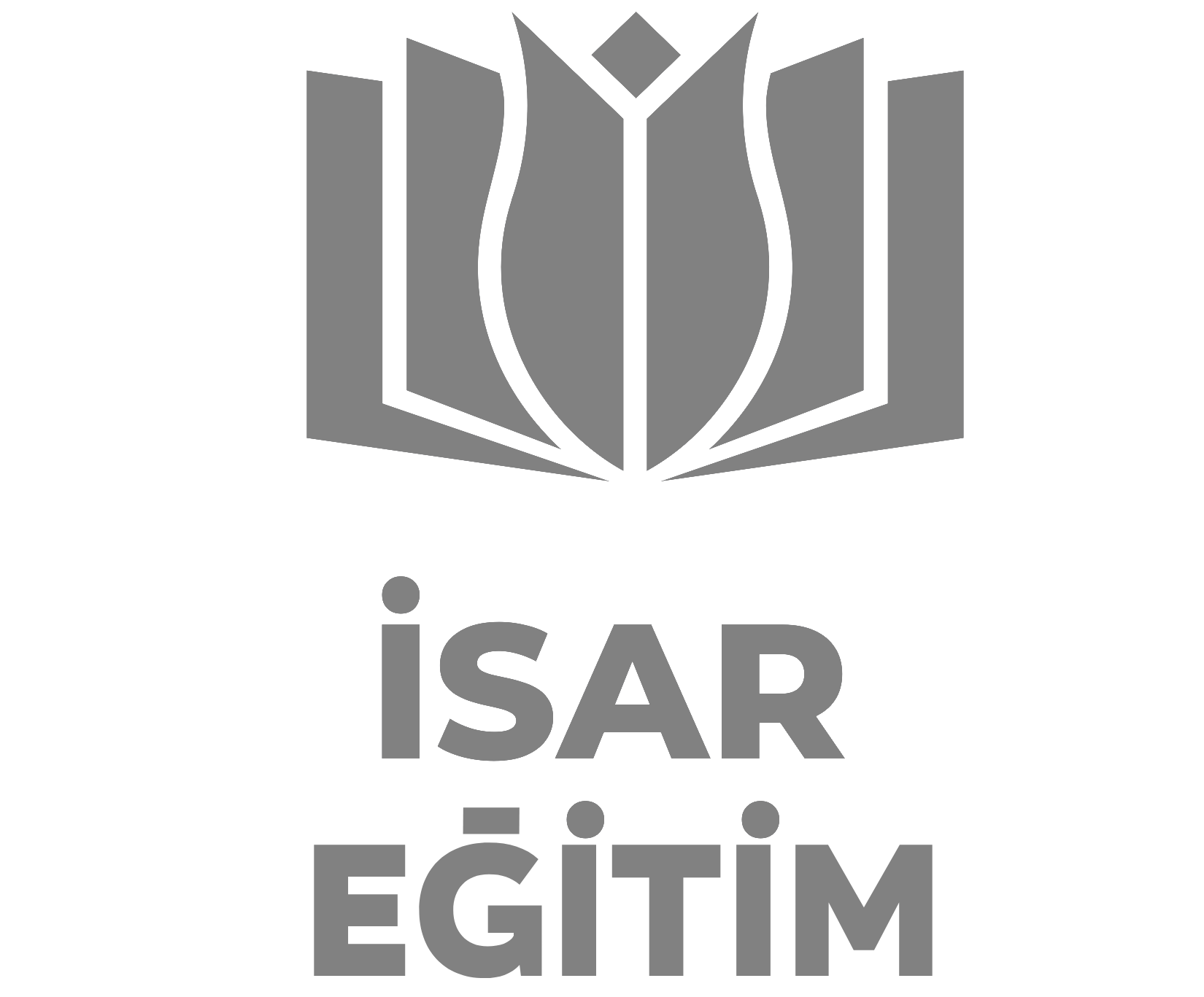Ethics in the Ottoman Period
CALL FOR PAPERS
In recent years, the Istanbul Center for Research and Education (ISAR) has organized a series of symposiums that deal with different branches of the Ottoman scientific tradition. The purpose of these symposiums is to redefine the place of the Ottoman tradition in both the overall scheme of the Islamic sciences and the history of thought in general, in order to contribute to the growing literature on these sciences within Ottoman society. In this context, eight symposiums have been organized so far, focusing on the disciplines of philosophical theology (kalām), jurisprudence (fiqḥ), sufism (taṣawwuf), quranic exegesis (tafsīr), prophetic traditions (ḥadīth), Arabic linguistic sciences (al-ʿulūm al-ʿarabiyya), logic and argumentation theory (manṭiq and munāẓara), and historiography. The output of each symposium has been published as an edited book. The ninth of these symposiums will be about ethics (ʿilm al-akhlāq) in the Ottoman period.
Ethics as a discipline in the history of Islamic thought, as in other civilizations, relates to the examination of the origin of our behavior which is subject to the predicates of good and bad, the criteria for good and bad, the faculties that occur in the human soul or mind and are accepted as virtue or vice, and virtues and vices that different classes of people need to obtain or refrain from. From the 13th century onward, the field of ethics transformed into a corpus which covers economics and politics, and has dealt with political, economic, and cultural relations beyond individual life. It has also been effective in the development of different perspectives and various understandings of the human being. Considering the long history of the basin of civilization established by Islam, it is clear that contemplation on ethics, which has various stages and forms of expression, is a suitable research area.
The Ottoman period is privy to a long and rich heritage in which the conceptual repertoire and discussions of the old heritage are kept alive thanks to copied works. On the other hand, intellectual production continued and solutions were offered to social and political problems through original texts, commentaries, and translations. Ottoman writings on ethics , which became evident in the 15th century, acquired its own original qualities in addition to encompassing the heritage of its predecessors. Led by such names as Cemaleddin Aksarayī, Ahmed al-Amāsī, Sinan Pasha, and Kāsım Karahisari, the venture of Ottoman writings on ethics continued with such scholars as: Idris-i Bitlis, Taşköprülüzāde, Kınalızāde, Pir Muhammed, Celālzāde Mustafa Çelebi, Gelibolulu Āli, Muhyi-i Gülşenī, and Müneccimbaşı Ahmed Dede. It has reached modern times with the works of intellectual and artistic connoisseurs like Yağıkçızâde Mehmet Arif, Ali Seydi, and Ömer Ferit Kam.
Despite being a vast research area, the Ottoman period, which reflects the contemplation on ethics in Islam with all its richness and originality, has still not been the subject of sufficient examination. In this context, the symposium Ethics in the Ottoman Period will focus on the scholars who dealt with ethics, works on the subject, and problems of the period. The symposium aims to illuminate the works, sources, methods, tendencies, aims, and theories of individual scholars who dealt with ethics on one hand, and to illuminate the principles, various aspects, and stages of the contemplation on ethics in the Ottoman Empire on the other. A holistic evaluation of all these, together with both their theoretical extensions and their application areas throughout history, can only be possible with an interdisciplinary effort that encompasses such sciences as history, jurisprudence, literature, Sufism, theology, philosophy, and medicine.
While not limiting, the titles of the symposium include the following sample themes:
- The scope and main milestones of ethical thought in the Ottoman period
- Possible classifications (chronological, regional, religious, ethnolinguistic, vocational, subject-based, etc.) for ethical texts and authors in the Ottoman period
- Ottoman thinkers' expectancy from ethics and the way they posited this science
- The place of ethics in the classification of sciences
- The relationship of ethics with the other disciplines, such as history, jurisprudence, politics, economics, literature, and Sufism
- Sources used in Ottoman ethical works
- Authoring motivations of Ottoman ethical thinkers and their intellectual traditions
- Types of authoring of ethical works of the Ottoman period
- Translation activities in the context of Ottoman ethical though
Notes
After the program, the authors will be given time for the selected papers to be arranged as book chapters and the texts will be published as part of a separate edited book.
The languages of the symposium to be held in Istanbul are Turkish, Arabic, and English.
Travel and accommodation expenses of accepted notifiers will be covered.
Abstracts should be arranged no more than 250 words.
Abstracts should be sent to symposium@isar.org.tr along with the applicants' contact information and academic CVs.



